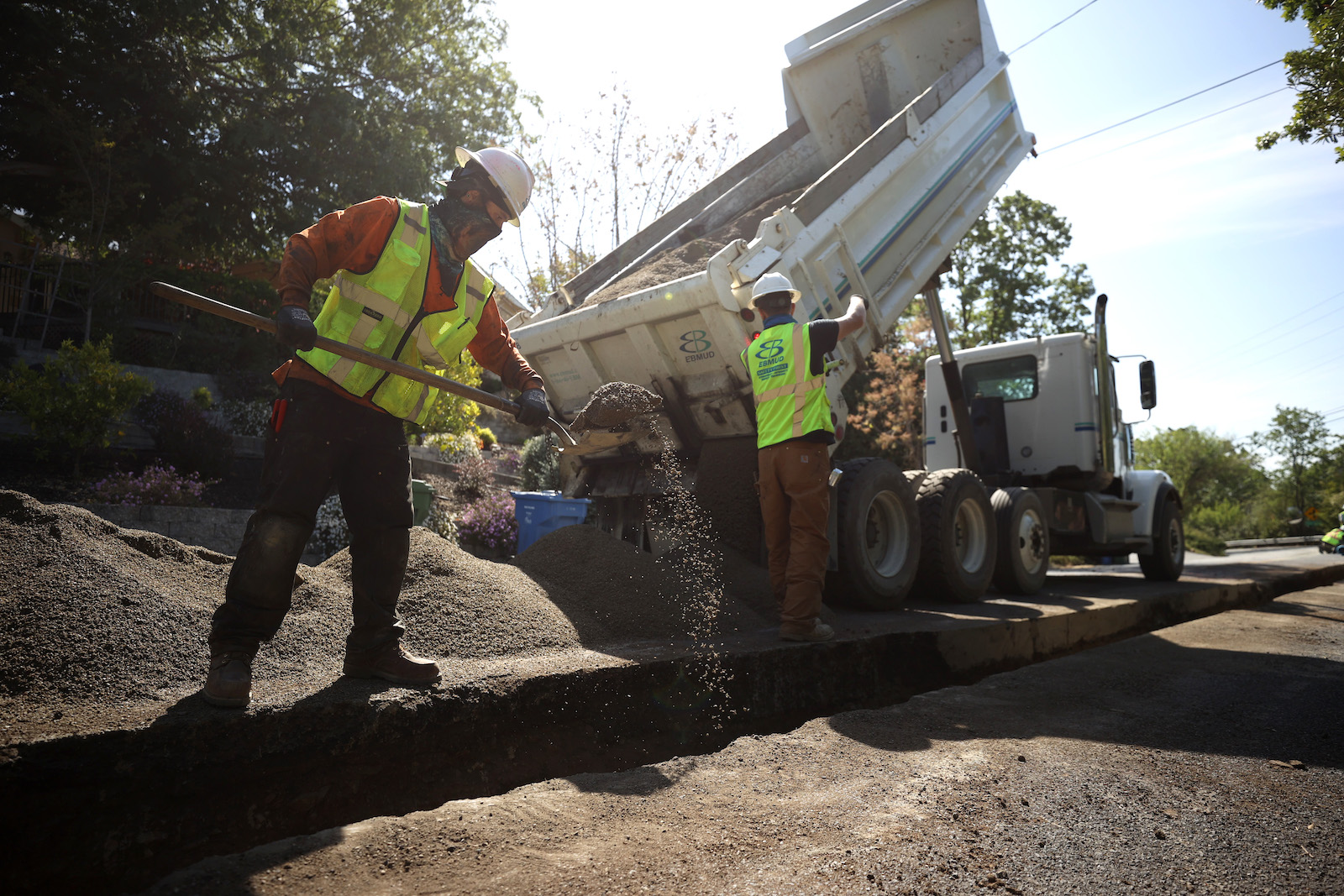After months of negotiation, President Joe Biden finally signed the long-awaited $1.2 trillion infrastructure bill into law on Monday afternoon. While the bill has been whittled down considerably compared to Biden’s initial $2 trillion proposal, the bipartisan agreement is a much-needed victory for the president — in part because, in the administration’s view, it commits the country to its largest-ever environmental justice investment.
Although Biden’s initial infrastructure spending vision was touted for the ways it could help mitigate climate change, the bill signed on Monday focuses heavily on conventional transportation infrastructure: Bridges, roads, ports, and airports would all see substantial investment. Nevertheless, according to the White House, roughly $240 billion is expected to be spent advancing environmental justice, a pillar of Biden’s campaign platform.
“These long-overdue investments,” according to an administration fact sheet shared exclusively with Grist on Monday, “will take much-needed steps to improve public health, reduce pollution, and deliver economic revitalization to communities that have been overburdened, underserved, and left behind.”
According to the document, the deal secures $55 billion to expand and revitalize household drinking water systems; $21 billion to clean up sites plagued by historic pollution, reclaim abandoned mining lands, and cap orphaned oil and gas wells; $66 billion to modernize and expand the country’s public transit and rail networks; $17 billion for port infrastructure and $25 billion for airports to make needed repairs, reduce emissions, and electrify operations; and over $50 billion to protect communities against droughts, heatwaves, wildfires, and floods.
The deal has been well-received by groups focused on the intersection of labor and environmental justice, as the spending is expected to create thousands of jobs across the country to complete projects such as lead pipe replacement in Illinois, abandoned mine cleanup in Kentucky, regional transit connections in Louisiana, bridge repairs in Massachusetts, and port electrification in Los Angeles.
“This will be a major boom to local economies in our region,” said Lyndsay Tarus of the Kentucky-based labor organization The Alliance for Appalachia last week. “This funding means thousands of jobs to clean up environmental hazards, and it will lay the foundation for countless jobs in future thriving economies.”
Not all stakeholders are pleased with the final legislative product, however.
“The infrastructure bill spends a lot of money but fails to target it to the needs of the day: building strong economic centers, providing equitable access to opportunity, addressing catastrophic climate change, improving safety, or repairing infrastructure in poor condition,” said Beth Osborne, director of the advocacy organization Transportation for America.
The deal is also intended to jumpstart the so-called Justice 40 initiative, through which the Biden administration committed to ensuring that 40 percent of government sustainability investments benefit the country’s most pollution-burdened communities. A senior administration official involved in the legislation confirmed to Grist that the implementation of the infrastructure bill will fall in line with the Justice 40 guidelines outlined by the administration in February and will be able to be tracked through an implementation scorecard, which is expected to be released by the White House early next year.
Justice 40 has been sidelined for months as the White House has been slow to advance a critical program meant to delineate which communities face the most pressing environmental problems (and therefore which communities should be targeted for Justice 40-related funding). It remains to be seen whether the funding enabled by the infrastructure bill will force the White House to make headway on this initial Justice 40-related task, which was expected to be completed in July.
For those who remain unsatisfied by the climate- and justice-related provisions in the infrastructure package, an additional $1.85 billion social policy and climate investment package remains on the table in the House of Representatives. That measure, if it makes it out of the House and to the Senate, could be blocked by conservative Democrats, scuttling its chances of passage in the face of unified Republican opposition.



